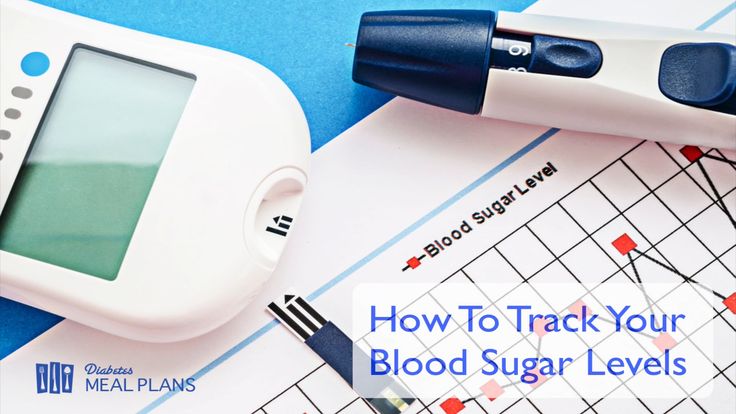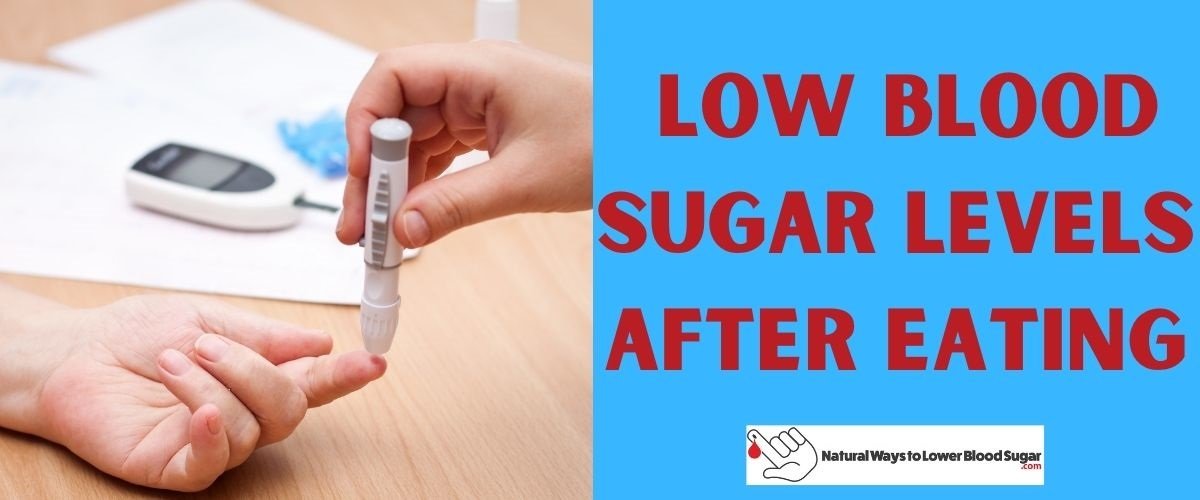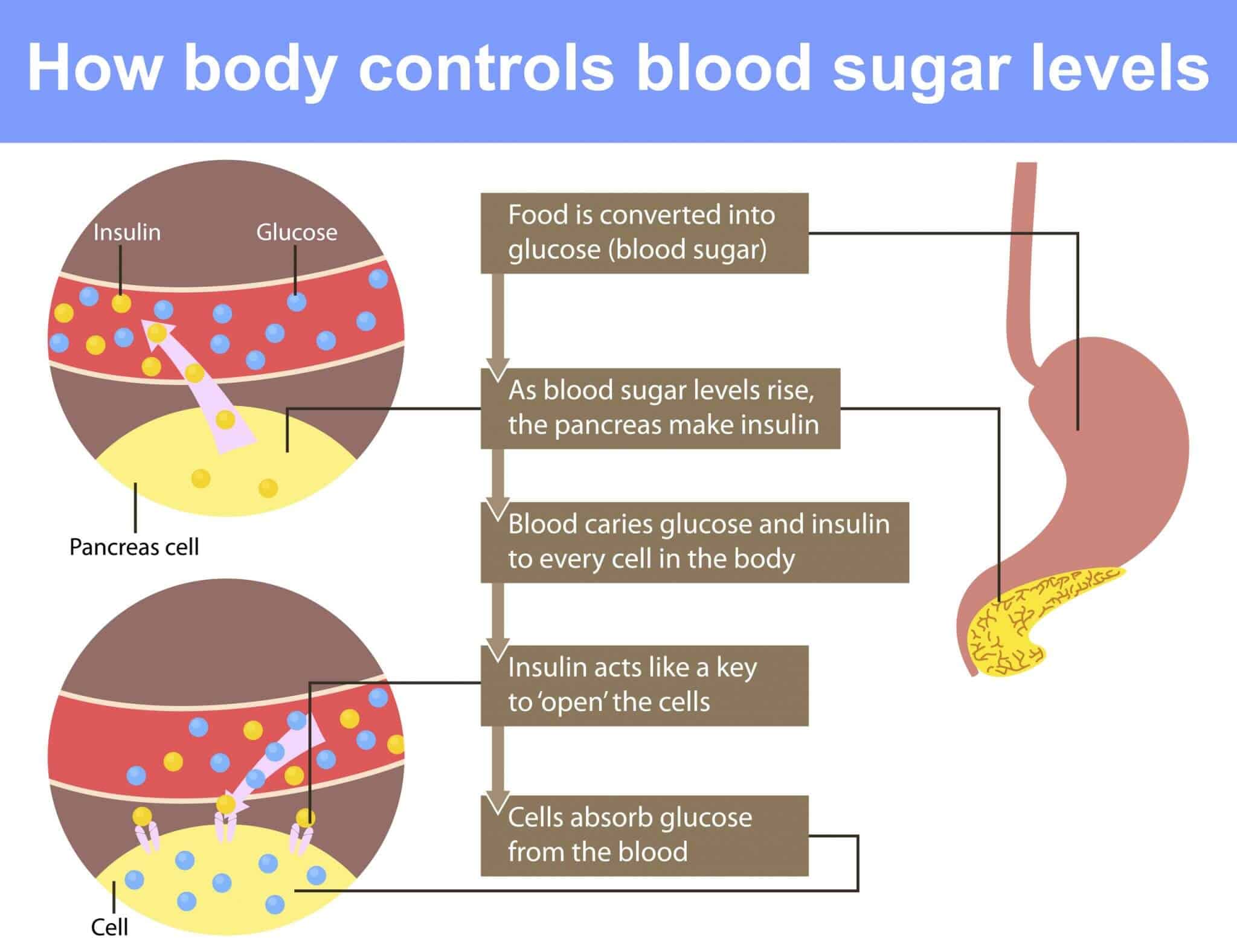Variability In Carbohydrate Consumption And Incorrect Nutritional Labels Can Cause Blood Sugar Fluctuations
Unfortunately, regulatory agencies do not always disclose certain facts. One of the facts is that nutrition facts can also have a certain degree of certainty which is allowed by regulatory agencies and by law. This Uncertainty can be again up to 20%. If you are counting carbs or trying to count carbs, knowing that even nutrition facts are not 100% accurate will make it extremely difficult to stay on track and prevent fluctuations. This means that 100 g that is reported on the nutrition label can actually be 120 g of carbohydrates. Of course, given the variability in the insulin absorption and variability in the nutrition facts will put you at a significant risk for blood sugars to go up and down or fluctuate significantly. This is even more of a problem for patients with type 1 diabetes.
Taking The Excessive Or Inadequate Amount Of Diabetes Medication Can Cause Blood Sugar To Go Up And Down
I will give you an example. For example, you take 10 units of insulin before every meal and you eat a bagel every morning, not that you should, but this morning you decided to eat something different. He decided to eat 2 eggs, cucumbers, and yogurt because you are in the mood for a healthy breakfast. On the other hand, he still took to 10 units. What you may not have realized is that a bagel has 50 g of carbs versus yogurt and cucumbers probably have less than 20 g of carbs. As you can imagine if your blood sugars remain okay with 10 units of insulin and 50 g of carbs he will more than likely end up having very low sugar after eating only 20 g of carbohydrates and taking the same 10 units of insulin. This case is a good example of taking an excessive amount of medication when you do not need it. You have to be very careful when it comes to short-acting insulins or short-acting medications such as NovoLog, Humalog, Fiasp, Starlix, repaglinide, and sometimes glipizide and glyburide.
Variability In Diabetes Medication Absorption Can Cause Blood Sugar To Go Up And Down
A lot of patients with diabetes do not know or understand the fact that bioavailability of medications we take again and again is not necessarily the same. In other words, the same dose of the same medication may be absorbed differently every time we take the medication. Most insulin injections have variability in absorption after injection up to 20%. This variability can change from 5% up to 20%. At higher levels of insulin, the absolute number of insulin units will change significantly. For example, if you take 10 units of insulin, maximum variability may result in the absorption of 8 units of insulin. On the other hand, if you are taking 100 units of insulin they can create insulin variability up to 20 units. Obviously, this will create significant changes in blood sugar levels. The site of injection, type of needle, and technique of injection can also make a difference in the variability of insulin absorption.
Besides insulin, other medications can have variability in the absorption and lead to up and down blood sugars or severe blood sugar fluctuations. For example, taking metformin with food can improve the absorption compared to taking metformin on an empty stomach.
Changes In Activity Level And Exercise Can Cause Blood Sugar To Go Up And Down
Up-and-down blood sugars after exercise
Clearly when we exercise our body uses more glucose and we become almost immediately more insulin sensitive. As a result, any medication that increases the level of insulin such as sulfonylureas or insulin will be more effective in reducing blood sugars. For example, if you normally take 40 units of Tresiba which is a long-acting insulin, daily going to the gym today may give you low sugar after midnight. That is more likely to happen if you wake up with blood sugars below 100 to 120 milligrams per deciliter range as you will have a less buffer/safety zone for potential low sugar. In this case, you may want to reduce the amount of Tresiba by 20 to 30% or more depending on the amount of exercise you have had. Monitoring your blood sugar closely on the days see you go for exercise will help me understand your blood sugar patterns after exercise. Remember exercise can influence your sugars in the short-term after 24 hours following exercise.
If you Master to adjust your medications based on your exercise you will be able to prevent blood sugars go up and down and reduce blood sugar fluctuations.
Changes In Diet Patterns Or Food Content Can Cause Blood Sugar Fluctuations

Changes in Diet can fluctuate blood sugar.
All other people know that high carbohydrate content in the food will spike blood sugars. However, not everybody is aware of the glycemic index. The Glycemic index is an indicator of how fast the blood sugar will spike with the same amount of carbohydrates. For example at 30 g of carbohydrates in apple have a much lower glycemic index and 30 g of carbohydrates in the breakfast cereal. Blood sugar may spike twice or 3 times faster with the breakfast cereal compared to apple with the same amount of carbohydrates.
Another point that You have to be aware of is the fat content in the food. Anytime you eat carbohydrates with high animal fat content your blood sugars may spike much higher and the spike may come delayed many hours after a high fat, high carb meal.
On the contrary, if you eat very healthy and eat very little carbs the medications you have been taking for your regular diet may be too much especially if you are on sulfonylureas or short-acting insulins.
In summary, to prevent blood sugars go up and down or fluctuate too much you have to pay attention to the glycemic index and fat content in your diet in addition to paying attention to carbohydrates.
I Eat Almost No Carbs And My Blood Sugar Is Still High Charlottes Story
Stop Guessing
Join the Masterclass to Take Immediate Control of Your Diabetes Health
Start feeling better, gain energy, lose weight, and reduce your medication costs quickly
Jamie Koonce, DACM, L.Ac, Dipl.OM
Meet Charlotte Faith.
Diagnosed with type 1 diabetes at the age of 14, Charlotte weighed only 83 pounds.
Even though she ate large amounts of food, she found herself ravenously hungry and began gaining weight rapidly. Only 1.5 years following her diagnosis, Charlotte gained about 70 pounds, weighing over 150 pounds.
Soon after, Charlotte embarked on a journey to lose weight and fully control type 1 diabetes, which involved eliminating heavily processed foods and eating a low-carbohydrate paleo diet.
In combination with moderate exercise, Charlotte began losing weight. As a paleo food blogger, she made sugar-free, “low carb” treats to satisfy her cravings for carbohydrate-rich food and was able to lose about 32 pounds.
Charlotte limited her carbohydrate intake to no more than 50 grams per day, yet still experienced high blood glucose values after eating a banana or half a sweet potato.
She often complained to herself: “I eat almost no carbs and my blood sugar is still high! How is this possible?”
In addition, Charlotte developed hypothyroidism and lost her period for 7 years.
What Physical Side Effects Can People Expect To Experience Afterwards
“Most people feel absolutely fine after giving blood. Occasionally people may feel faint and if you do, you should lie down immediately, rest until you feel better and drink plenty of fluid. Any bruising is usually harmless and will disappear over time. You will be given information to advise you of what to do should you have any concerns.”
Recommended Blood Sugar Targets For Most People With Diabetes*
Your targets may not be the same as the examples in this chart. Your targets are important and should be specific to you.
| A1C** | |
| 4.0 to 7.0 | 5.0 to 10.0 |
* This information is based on the Diabetes Canada 2018 Clinical Practice Guidelines for the Prevention and Management of Diabetes in Canada and is a guide.** A1C is a measurement of your average blood sugar control for the last two to three months and approximately 50 per cent of the value comes from the last 30 days.
Silver Maple Recovery Can Help You On Your Sobriety Journey
Whether you’re struggling to stop drinking or have relapsed, we’re here to help. We use a curriculum of evidence-based therapies to help you heal from your alcoholism. As Northeast Ohio’s premier provider of alcohol addiction treatment, you can safely and privately recover from alcohol addiction.
Fighting an alcohol addiction is a challenge, but it’s not something you have to go through alone. When you call Silver Maple Recovery at 855-762-7531, you’ll be in contact with a professional caregiver. We’re here to help you achieve your recovery goals. Contact our team to get started today.
About Blood Donation: Diet Before And After Donating Blood
Donating blood is a generally safe procedure made safer by following a few dietary suggestions. Annapurna Agrawal, Nutritionist at Snap Fitness India shares a few diet tips to be followed before and after your blood donation so as to help you make your donation experience as safe, successful and pleasant as possible
Diet before donating Blood:
Eat iron rich foods for two weeks before your appointment, for example, whole grains, spinach, rice flakes, watermelon etc.
Include foods which are rich in Vitamin C– having good levels of vitamin C will help to increase iron absorption. So consume more citrus fruits and juices, amla etc.
Drink plenty of water and Fruit juices in the night and morning before you donate. Drink at least eight glasses of liquids in the morning of donation. Avoid carbonated drinks in favour of plain water or juices
Avoid fatty foods for twenty –four hours before you donate blood. Fatty foods can affect the tests which will be done on your blood. Because of the excess fat in your blood, your donation can’t be tested for infectious diseases and the blood will not be used for transfusion.
Eat a healthy meal before your donation. Eating will keep your blood sugar levels stable, helping you to feel better after you have donated.
Diet after donating Blood:
Before And After Donating Blood: What To Eat And Benefits
Team AckoJul 22, 2021
Blood is one of the most important things that helps a person live. About 4 to 6 litres of blood is present in an average human body depending upon the gender and structure of a person. It is known that excessive loss of blood can cause death. In medical terminology this is called “Exsanguination” and a lot of people lose their lives because of this. This is exactly why donating blood is imperative. You must have an idea about how a human body can produce extra blood that can be donated but, through this article, you can know more about blood donation and what to eat before and after donating blood. The article also contains details that will help you understand the benefits of blood donation and how donated blood is used to save lives. Read on.
Sugar Cravings After Quitting Alcohol Starts In The Brain
For people who quit drinking, it’s natural to think that you’re craving sugar because your body is used to the high sugar content found in alcoholic drinks. While this is a logical assumption, there is a deeper link. And it all starts in the brain. According to a recent study, eating sweets causes your brain to release dopamine. That’s the reward-based chemical that makes you feel good.
So why does that matter? Well, drinking alcohol can have the same effect. After you quit drinking, your body knows that it can reach a similar state through sugar. In fact, according to the Journal of Psychoactive Drugs, sugar affects many of the same neural pathways in the brain as alcohol does.
Alcohol addiction can have a powerful hold over you. But if you’ve quit and are on the road to recovery, it’s important to be aware of the addiction shift from alcohol to sugar.
Are There Tests You Have To Undergo Before Donating Blood

“When you go for your appointment, the staff will carry out a pre-assessment to make sure you are able to give blood on the day. You can visit Blood.co.uk and answer NHS Blood and Transplants interactive questions which cover the most common reasons donors are unable to donate when they attend their appointment.”
What Else Can I Do To Help Manage My Blood Sugar Levels
Eating a healthy diet with plenty of fruit and vegetables, maintaining a healthy weight, and getting regular physical activity can all help. Other tips include:
- Keep track of your blood sugar levels to see what makes them go up or down.
- Eat at regular times, and don’t skip meals.
- Choose foods lower in calories, saturated fat, trans fat, sugar, and salt.
- Track your food, drink, and physical activity.
- Drink water instead of juice or soda.
- Limit alcoholic drinks.
- For a sweet treat, choose fruit.
- Control your food portions .
What Are The Best Foods To Eat After Youve Given Blood
“You will be encouraged to have at least two drinks and a snack before you leave the donation centre, to re-hydrate the fluids you have lost during the donation and to keep your blood sugar levels stable. Once you have left the centre, you are able to eat and drink as normal. It’s important to eat a healthy diet with adequate iron in it to replenish the iron you will have lost in the donation.”
Stress And Anxiety Can Cause Blood Sugar Fluctuations
Blood sugars can go up and down due to stress and anxiety
Unfortunately when you are under stress and have anxiety our body produces stress hormones. The most commonly known stress hormones are cortisol and adrenaline. These are the same hormones that can increase blood sugars in the morning known as the dawn phenomenon. However, chronically elevated stress and anxiety can lead to elevated cortisol and adrenaline levels which are hormones that reduce the efficacy of insulin. Pain is another reason that can increase blood sugar levels through the same mechanism. Thinking positively and finding ways to reduce stress and anxiety can definitely improve blood sugar levels.
This Means Sugar Doesnt Get Taken Up By The Fat Cells
Now in the big picture of things, fat cells are actually not considered big sugar consumers. After all……they’re fat cells. What they do or don’t do with THE FAT, is considerably more important. But, it turns out, the wee amounts of glucose being delivered to the fat cells, are important for asprosin.
Feeling Bad After Giving Blood Complete Care Can Help
At Complete Care, we use donated blood on a daily basis to help save the lives of our patients. Just one donation can help save up to three lives! Find a local blood drive near you and schedule a date to donate today.
However, even if you know exactly what to do before giving blood,you can still feel dehydrated, nauseous, and potentially faint afterwards. This usually happens if your blood pressure drops due to dehydration. If this happens to you, Complete Care is open 24/7 and welcomes walk-ins that can typically be seen within a few minutes, not hours. Our stand alone emergency room facilities are able to offer our patients with the same level of care as an emergency room attached to a hospital, but without the wait time.
We are here for any of your health concerns. Visit your nearest Complete Care location today for quick, efficient, patient-centered care today.
More Helpful Articles by Complete Care:
Do Any Health Conditions Rule You Out Of Giving Blood
“Although most people can give blood, there are some restrictions – depending on things like your health, medication, and whether you’ve been abroad recently, or if you’ve recently had a COVID-19 vaccine. You are usually able to give blood provided you are: fit and healthy, weigh between 7 stone 12 lbs and 25 stone, or 50kg and 160kg, are aged between 17 and 66, or over 70 and have given blood in the last two years. If you are underweight, pregnant, receiving IVF treatment, are on certain types of medication or have previously received a blood transfusion, you are unable to give blood.”
Are You Allowed To Exercise Before/after Giving Blood
“Avoid doing any vigorous exercise or heavy lifting the day of your donation – both before and after you’ve given blood. Keeping your body in a rested state is important to give it a chance to replenish the fluids lost during donation, which will help you avoid feeling dizzy or lightheaded and keep you well. Light exercise such as walking is fine, but please make sure that you are fully recovered and hydrated prior to your donation.”
What Hapens To Your Blood Sugar When You Give Blood

Note: This is only my experience while donating blood. Your experience, like your diabetes, may vary.
I got up early the Saturday before last, had breakfast, and made my way to the American Red Cross Mt. Hope Donor Center in Baltimore. I had intended to write about the blood donation process; being transparent about what transpires is a good thing.
But… sometimes, your blood sugar numbers just get in the way of your best-laid plans.
I arrived at the center about ten minutes early Saturday. I figure, early in, early out. Prior to going in, I checked my BG and it was 156 mg/dL . I did carry my meter in with me, which you should do too if you decide to donate blood.
I was not concerned about this number, but I knew my BG would probably come down during the donation process, so as I entered the center I suspended my pump. What if I wound up high later? I didn’t care. In this case, better to be high than to go too low during the donation process.
I went through the initial reading of information, being tested for anemia, and answering questions to make sure I didn’t have any conditions and that I’m not taking any medications that would preclude me from giving blood. Then it was on to the donation.
I sat down, and the first thing I did was pull my meter out of my pocket and check. Which, if you decide to donate blood, you should do too. What was the result? 50 mg/dL .
Tips For Diabetics On How To Prepare To Give Blood
In the days before your donation, strive to keep your sugar level within the normal range as determined by your medical care team. As with all blood donors, we recommend that you hydrate well the days before and after your donation and get plenty of sleep the night before. Find more pre-donation tips here.
Best Foods To Eat Before And After Blood Donation
It is necessary to know what to eat before and after donating blood that can help you fill in the lost vitamin and iron.
Healthy DietTavishi Dogra
Donating blood can take literally and figuratively take a lot out of you. You can counter some of the after-effects of blood donation by priming yourself with nature’s best fatigue fighter, known as iron. After donating blood, you may feel some fatigue, and it is inevitable, though. However, it’s not the only reason to increase your iron consumption, and it also states: iron deficiency in the blood could affect your ability to donate.
The Best Time To Check Blood Glucose After A Meal
Q: I was recently diagnosed with type 2 diabetes. Should I check my blood glucose two hours from when I start eating or after I finish eating my meal? A: Most of the food you consume will be digested and raises blood glucose in one to two hours. To capture the peak level of your blood glucose, it is best to test one to two hours after you start eating. The American Diabetes Association recommends a target of below 180 mg/dl two hours after a meal. The American Association of Clinical Endocrinologists recommends a lower target: below 140 mg/dl two hours after a meal. Ask your doctor which target is right for you. Postmeal blood glucose monitoring is important because it helps you see how your body responds to carbohydrates in general and particular foods. Managing postmeal blood glucose can help reduce your risk of developing heart and circulation problems. Virginia Zamudio Lange, a member of Diabetic Living’s editorial advisory board, is a founding partner of Alamo Diabetes Team, LLP in San Antonio.Continue reading >>
What Should You Eat And Drink Before Giving Blood
“Eating regularly before donating will help to keep your blood sugar levels stable. This is important so that you don’t feel lightheaded or dizzy after your donation. Having a snack before donation can help maintain these blood sugar levels. Ensuring that your diet contains foods rich in iron – such as meats and green leafy vegetables – will help to keep you feeling well during and after donation. It’s really important to have plenty of fluid before coming to donate so that you are properly hydrated.”
Can Eating Sweets Cause Bouts Of Low Blood Sugar
Related Articles
When it comes to eating sweets, you hear a lot about high blood sugar, but taking in too much sugar can also cause bouts of low blood sugar. In most cases, the period of low blood sugar happens a couple of hours after eating the sweets, as a counter-response to high blood sugar. Although eating sweets will always prompt some sort of blood sugar and insulin response, there are some things you can do to lessen the effects.
Is It Fine To Go Back To Work After Giving Blood
“To help you stay well after you have given blood, you should rest for about 30 mins. You are also encouraged to eat and drink before leaving the donation centre. But after that, you are fine to go back to work. However, it is best to avoid using the donation arm to carry anything very heavy for the rest of the day. It is also best to avoid having a hot bath or shower after you have given blood.”
What Are Normal Blood Sugar Levels After Eating
Your blood sugar level is influenced by several factors, including the food you eat. During digestion, carbohydrates are converted into sugar which your body uses as an energy source. Excess sugar from any source is stored in your cells for later use. When your cells contain too much sugar, though, it can lead to type 2 diabetes. This is why eating a balanced diet to maintain a normal blood sugar range is important.
Blood sugar levels can vary based on many factors, including age and life expectancy, comorbidities like heart disease, stress, and lifestyle factors like physical activity, smoking, or drinking alcohol.
Diabetes: Can People With Diabetes Donate Blood

Dr. Anand S Deshpande says, “Many believe that people with diabetes cannot donate blood. There is a myth that by donating blood, blood sugar levels fluctuate. But this doesn’t happen.”
“People with diabetes can undoubtedly donate blood. The blood sugar levels need to be within the normal levels. Those who are taking insulin are deferred from donations. If the patient is on an oral hypoglycemic, they can undoubtedly donate blood,” he adds.
Also read: Myth Or Fact: Can Drinking Milk Lead To Type-1 Diabetes?

